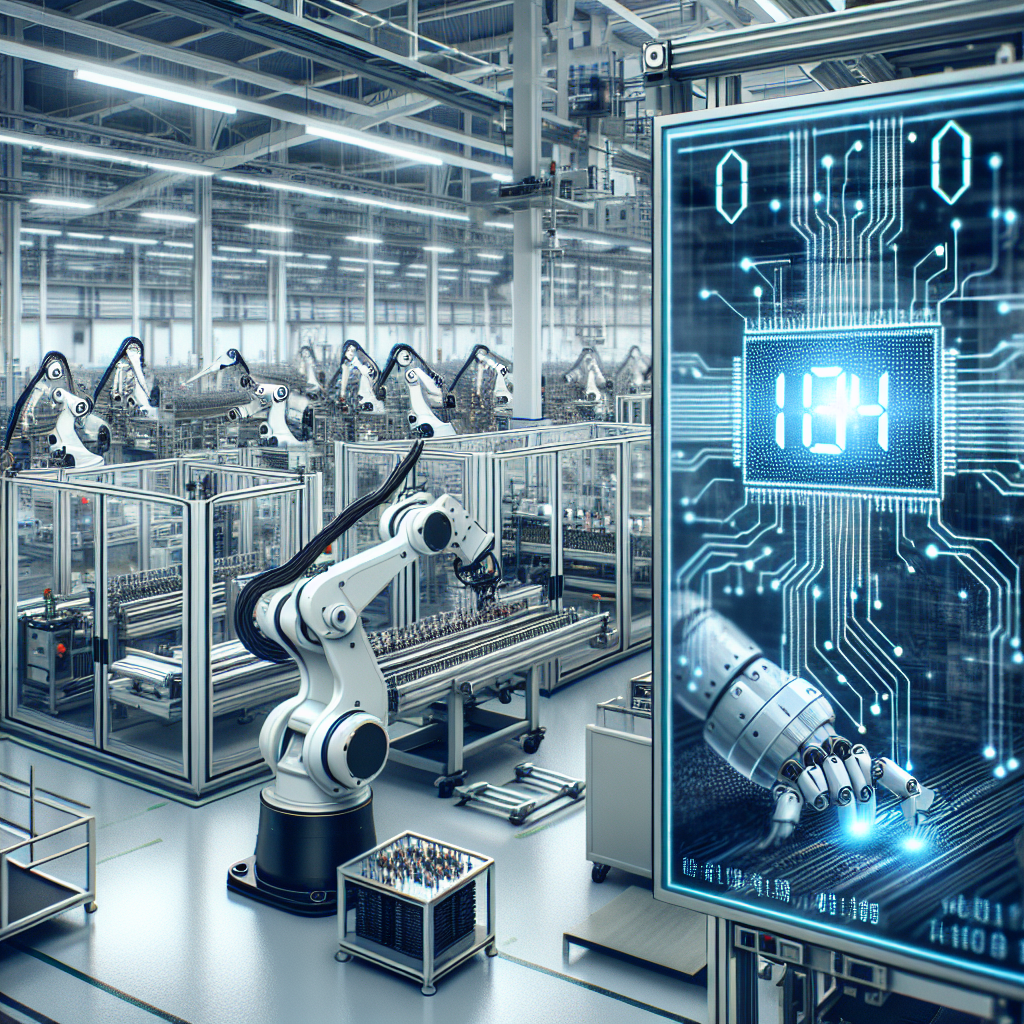In today’s fast-paced manufacturing environment, the concept of Just-In-Time (JIT) manufacturing has become increasingly popular. JIT manufacturing is a production strategy that focuses on producing goods only as they are needed, thus minimizing waste and reducing inventory costs. This approach allows manufacturers to respond quickly to changes in demand and improve overall efficiency.
Artificial Intelligence (AI) has played a significant role in transforming JIT manufacturing processes. AI technologies such as machine learning, predictive analytics, and data mining have enabled manufacturers to optimize production schedules, predict maintenance needs, and improve quality control. In this article, we will explore the role of AI in JIT manufacturing and its impact on the industry.
1. Optimization of Production Schedules:
One of the key benefits of AI in JIT manufacturing is its ability to optimize production schedules. AI algorithms can analyze historical data, current demand forecasts, and other relevant factors to generate production schedules that minimize waste and maximize efficiency. By continuously analyzing and adjusting production schedules in real-time, AI systems can ensure that manufacturers are producing goods exactly when they are needed, without overproduction or underproduction.
2. Predictive Maintenance:
Another important application of AI in JIT manufacturing is predictive maintenance. AI algorithms can analyze data from sensors and other sources to predict when equipment is likely to fail. By detecting potential issues before they occur, manufacturers can schedule maintenance activities at the most convenient times, minimizing downtime and reducing the risk of unexpected breakdowns. This proactive approach to maintenance can help manufacturers maintain production schedules and reduce overall costs.
3. Quality Control:
AI technologies can also play a crucial role in improving quality control in JIT manufacturing. AI-powered systems can analyze data from sensors, cameras, and other sources to detect defects and anomalies in real-time. By identifying quality issues early in the production process, manufacturers can take corrective action immediately, preventing defective products from reaching customers. This not only improves product quality but also reduces waste and rework costs.
4. Demand Forecasting:
AI algorithms can analyze historical sales data, market trends, and other factors to generate accurate demand forecasts. By predicting future demand patterns, manufacturers can adjust production schedules and inventory levels accordingly, ensuring that they are producing goods at the right time and in the right quantities. This proactive approach to demand forecasting can help manufacturers minimize stockouts, reduce excess inventory, and improve customer satisfaction.
5. Supply Chain Optimization:
AI technologies can also optimize supply chain management in JIT manufacturing. By analyzing data from suppliers, transportation providers, and other sources, AI systems can identify bottlenecks, inefficiencies, and other issues in the supply chain. By optimizing transportation routes, managing inventory levels, and improving communication with suppliers, manufacturers can ensure that materials and components are delivered to the production line exactly when they are needed, minimizing delays and disruptions.
Overall, the role of AI in JIT manufacturing is to improve efficiency, reduce waste, and enhance overall profitability. By leveraging AI technologies to optimize production schedules, predict maintenance needs, improve quality control, forecast demand, and optimize the supply chain, manufacturers can achieve significant cost savings and competitive advantages in today’s fast-paced manufacturing environment.
FAQs:
1. What are the benefits of using AI in JIT manufacturing?
AI technologies can optimize production schedules, predict maintenance needs, improve quality control, forecast demand, and optimize the supply chain in JIT manufacturing. These benefits can help manufacturers reduce waste, minimize downtime, improve product quality, and enhance overall profitability.
2. How can AI improve production schedules in JIT manufacturing?
AI algorithms can analyze historical data, current demand forecasts, and other relevant factors to generate production schedules that minimize waste and maximize efficiency. By continuously analyzing and adjusting production schedules in real-time, AI systems can ensure that manufacturers are producing goods exactly when they are needed, without overproduction or underproduction.
3. What is predictive maintenance in JIT manufacturing?
Predictive maintenance is a proactive approach to maintenance that uses AI algorithms to analyze data from sensors and other sources to predict when equipment is likely to fail. By detecting potential issues before they occur, manufacturers can schedule maintenance activities at the most convenient times, minimizing downtime and reducing the risk of unexpected breakdowns.
4. How can AI improve quality control in JIT manufacturing?
AI-powered systems can analyze data from sensors, cameras, and other sources to detect defects and anomalies in real-time. By identifying quality issues early in the production process, manufacturers can take corrective action immediately, preventing defective products from reaching customers. This not only improves product quality but also reduces waste and rework costs.
5. How can AI optimize the supply chain in JIT manufacturing?
AI technologies can analyze data from suppliers, transportation providers, and other sources to identify bottlenecks, inefficiencies, and other issues in the supply chain. By optimizing transportation routes, managing inventory levels, and improving communication with suppliers, manufacturers can ensure that materials and components are delivered to the production line exactly when they are needed, minimizing delays and disruptions.

